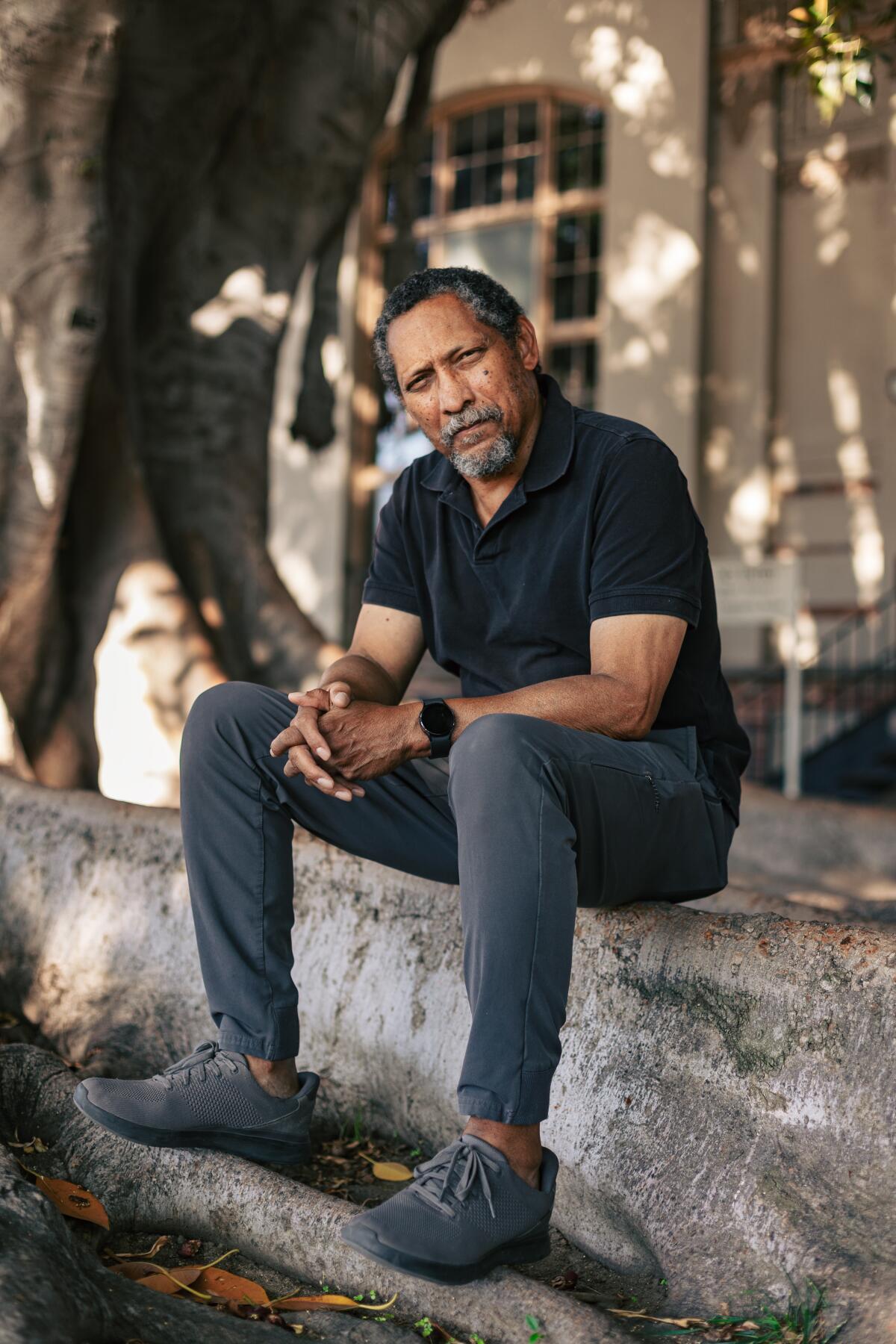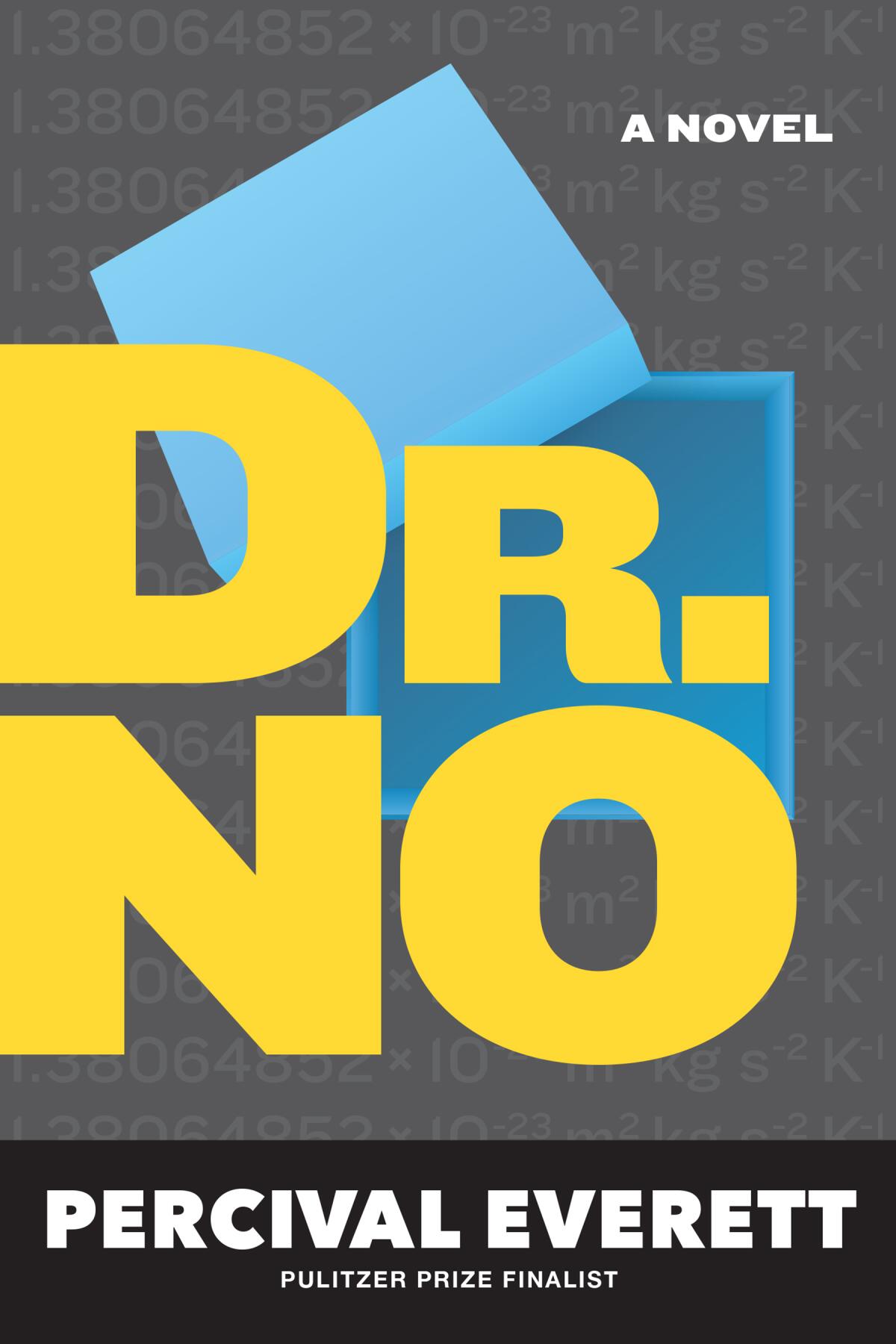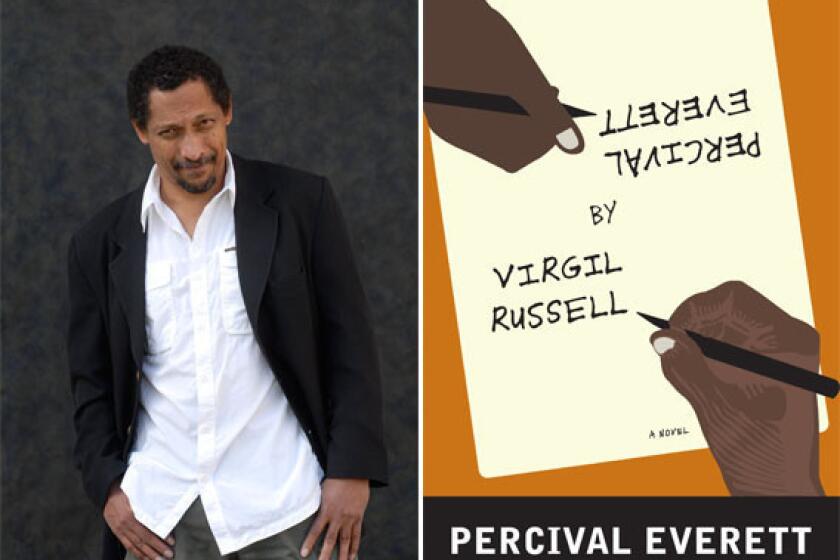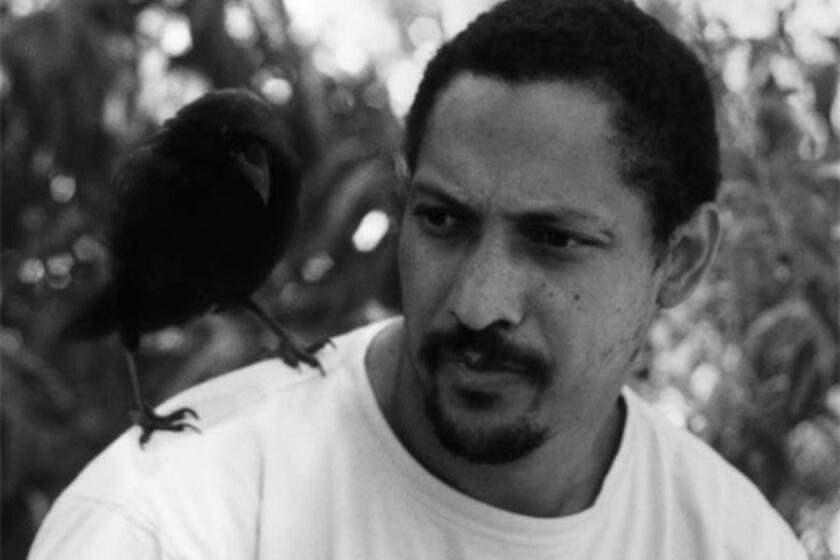L.A. novelist Percival Everett, in advance of his latest, ‘Dr. No,’ talks about nothing

- Share via
Fall Preview Books
Dr. No
By Percival Everett
Graywolf: 232 pages, $16
If you buy books linked on our site, The Times may earn a commission from Bookshop.org, whose fees support independent bookstores.
Percival Everett writes novels that play with genre, with language and with our culture’s assumptions about race and gender. But for his novel “Dr. No,” coming in November from Graywolf Press, Everett wrote about nothing.
The latest from the USC English professor and Guggenheim fellow is another cross-genre hybrid featuring a cast of characters out of a 007 novel: John Milton Bradley Sill, a billionaire who wants to be a Bond supervillain; a mathematician named Wala Kitu whose specialty is the concept of “nothing”; and a young woman who is both a genius and a sex object. All become entangled in Sill’s desire to own what’s inside Fort Knox, with a subplot involving the assassination of Martin Luther King Jr.
Everett spoke with The Times in August via Zoom about lots of things, but mostly nothing.

In “Dr. No,” Sill wants to possess everything, while Wala Kitu (whose two names translate as nothing) specializes in nothing. “Zero” is a mental concept that cannot be demonstrated in real life. How did you conceive of a nothing you could write about?
I started with nothing. [Laughs.] Nothing has been a fascinating concept for the longest time. The West refused to have the number zero because it undercut the notion of God: You cannot have nothing because of the prime mover. But in the Near East and in the Arab world, nothing allowed all sorts of tabulations. So in that highly religious way, when you realize that something was really useful, you modify your religion.
I love arithmetic; it’s fascinating to me. I wish I were a mathematician. I would be if I were smart enough to understand a lot of the stuff I read, but I come away with nothing.
Meet Percival Everett and ‘Percival Everett’
Which came first: the idea of nothing or the desire to write a caper?
I honestly don’t know. It’s certainly the case that whenever I finish a novel, I forget it immediately. Actually, the birth of the novel had nothing to do with the novel we ended up with. It was actually my thinking: What would happen if the character from my novel ‘Glyph’ grew up?” At the beginning [Wala Kitu] identifies himself as Ralph Townsend [the toddler-prodigy narrator of “Glyph”]. That’s where it started for me.
Sill believes he can use his money to possess nothing but instead creates negative space. Wala Kitu seems to understand that nothing is actually neutral — stasis. Do I have this right? In your view, does nothing have a value?
The novel, though about nothing, is actually about finding something in the nihilistic existence. For the characters, we could perhaps say that their pursuit of nothing is a response to a materialistic world that offers many somethings that finally don’t amount to much and are not satisfying. Of course, this is all bull— and really adds up to nothing. Does that help? I can’t go on, as I have nothing left. At least, there’s that.
In his new novel, “The Trees,” Everett mixes wordplay, farce and horror to spin a comic, deeply serious revenge story out of the Emmett Till lynching.
Book Club: If You Go
What: Novelist Percival Everett joins the L.A. Times Book Club to discuss “Dr. No” with columnist LZ Granderson.
When: 7 p.m. Pacific Nov. 16. Doors open at 6 p.m.
Where: Autry Museum of the American West, 4700 Western Heritage Way, Los Angeles. Enjoy an evening of words, wine and browsing the museum after hours. Get tickets.
Book club newsletter: Sign up for the latest news and events: latimes.com/bookclub
More to Read
Sign up for our Book Club newsletter
Get the latest news, events and more from the Los Angeles Times Book Club, and help us get L.A. reading and talking.
You may occasionally receive promotional content from the Los Angeles Times.








